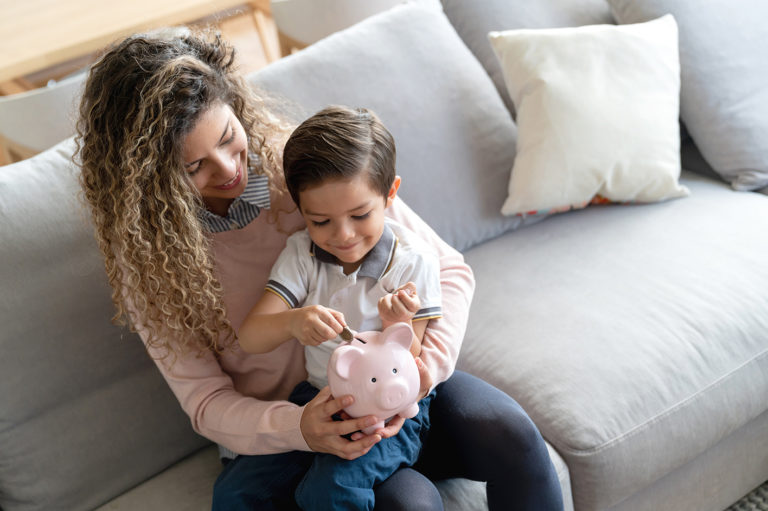When kids never see money change hands, they can easily start thinking of credit and debit cards as free, magic passes that get you whatever you want. Try narrating some of your plastic transactions when you know they’re watching, saying something like “I’m putting this purchase on my credit card which I’ll then pay off using money from my paycheck.”
Start a Conversation
- When you want to borrow something from someone, how do you show people that you are trustworthy?
- Is it okay to borrow money? When is it a good idea to borrow money and when is it a bad idea?
- What is the difference between cash, credit, and debit?
- What is interest?
Do an Activity
Older children and teens:
- Go through some credit card junk mail with your child. Talk about the details of the offer and whether there are any hidden fees, interest increases, or other hidden term agreements.
- Talk about any loans your family has. Explain how the loan works. Go over what the interest rate is, how much your monthly payments are, and how much longer the loan term is.
Younger Children:
- Get a library card if your child doesn’t have one already. Help your child choose books to borrow and explain that the books need to be returned on time and unhurt or your child will be charged a fee.
Most adults need to borrow money at some point, whether it’s on a credit card or for a house. Talking about the subject early and openly can prepare your child for that day in their life and help them avoid ever falling into serious debt.
It’s completely normal to find talking about money intimidating or uncomfortable, but you don’t need to know all the answers to start your child off on the right foot. Simple conversations lay the groundwork for open communication and lifelong learning.


